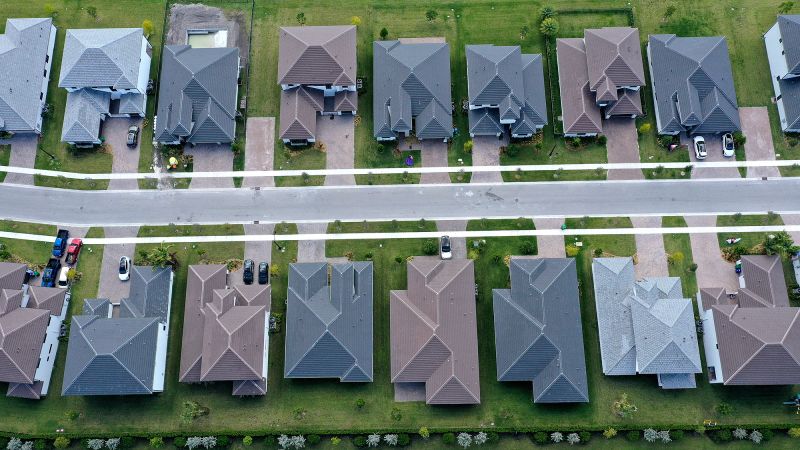Buying a family-sized home with three or more bedrooms used to be manageable for young people with children. But with home prices climbing faster than wages, mortgage rates still close to 23-year highs and a shortage of homes nationwide, many Millennials with kids can’t afford it. And Gen Z adults with kids? Even harder.
Meanwhile, Baby Boomers are staying in their larger homes for longer, preferring to age in place and stay active in a neighborhood that’s familiar to them. And even if they sold, where would they go? There is a shortage of smaller homes in those neighborhoods.
As a result, empty-nest Baby Boomers own 28% of large homes — and Milliennials with kids own just 14%, according to a Redfin analysis released Tuesday. Gen Z families own just 0.3% of homes with three bedrooms or more.



Yeah, I completely believe it.
Space-efficient middle housing for the poor and lower middle-class is not something we can rely on private companies to do in America. It’s something that is going to have to take government intervention.
The apartment complex I was in took up as much land as around 5-7 average sized new construction homes yet it housed
4246(I actually remember two of the buildings having 8 apartments each) apartments. It was also in a part of the country where a car was basically required. There was space for every apartment to have at least 1 car and have space to spare. Realistically probably about 1.5 cars per apartment could fit parked in the complex.Parking minimums are utter madness, and a big part of the issue in the US. Although I understand that in some states/cities where this isn’t required, developers still overbuild the parking just out of the assumption that buyers/renters will prefer it.
Buyers and renters definitely prefer parking. I wouldn’t buy or rent a place that didn’t have parking. I can’t solve the transportation infrastructure problem myself so until there is actually meaningful transit, I need my car, and I need some place to park it.
Yes, but do you need multiple parking spaces for every tenant (who might not have a car), especially given most parking lots are massively underutilized? Even more so when you look at the situation across a neighbourhood or a city where there are likely spaces nearby that could be used.
True.
However I was simple talking about an apartment complex in a relatively rural part of the country without access to public transit. There were about 55-60 parking spaces for 7 buildings of 46 apartments.